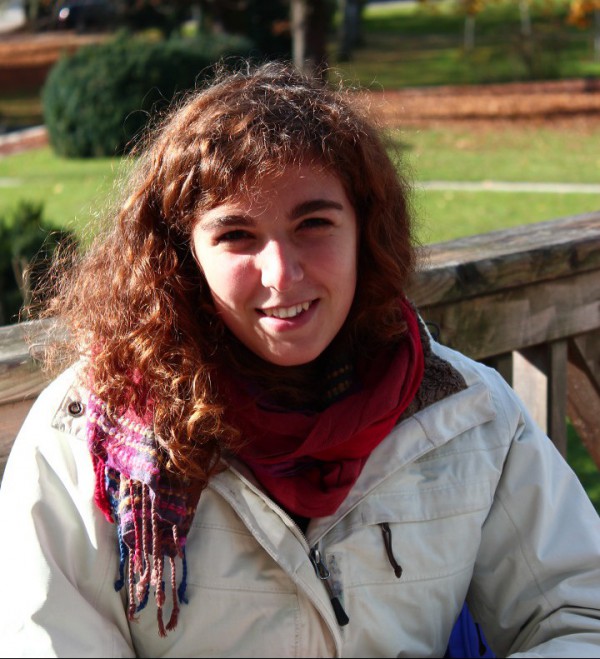Cecilia Chiaracane
Interview by Carey Sargent, EPFL, NCCR MARVEL
Why did you decide to come to EPFL?
EPFL Lausanne is a very famous institute and it was a good opportunity to understand how it is to work in a research environment and then decide whether to continue with a PhD or not. It was also my first time living abroad, and that was exciting.

What was your master's thesis on?
My thesis was focused on a particular type of topological insulators, which are interesting materials that behave as insulators in the bulk (inside the system) while exhibiting conducting states with unique properties on their borders. However, few experimental observations of this new state of matter have been recorded, especially for the topological phase called Quantum Anomalous Hall. I studied a series of compounds, computing their electronic and magnetic properties, in order to identify more candidates to realize this phase.
Why do you think women are underrepresented in science?
I think that it's a problem that starts way earlier than in university and one of the causes is that society, so parents and consequently children, are affected by the misconception that associates scientific thinking with men and the inclination to take care of the others with women. In Italy, for example, it's possible to choose between different kinds of high schools and those where more hours are dedicated to math and physics always present a strong majority of male students.
One piece of advice is not to get intimidated by a prevalently male environment.
Any advice for young women interested in science?
One piece of advice is not to get intimidated by a prevalently male environment. This is what happened to me and other female students during the first months of the bachelor's degree — we felt as we weren't taken so seriously by some classmates during physics discussions. Another important thing is to focus on the studies trying not to get demoralized and, in such cases, to point out and oppose stereotypes and sexism regardless of their sources.
